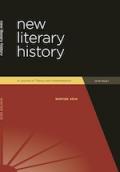
Eva Illouz
The disciplines of sociology and literary studies have seen a renewed interest in morality and in ethics in recent decades, but there has been little dialogue between the two. Recognizing that literary works, both classical and popular, can serve as moral critiques and that readers, of all types and classes, can and often do serve as moral critics, this paper seeks to apply some insights of pragmatic sociology to the field of literature by exploring the ways in which moral claims are expressed, evaluated, and negotiated by texts and through texts by readers. Drawing on the new French pragmatic sociology, represented by sociologists such as Luc Boltanski and Laurent Thévenot, this paper claims that fiction has a twofold role in civil society. Firstly, novels serve as critiques in their ability to formalize and dramatize generalizable logics of evaluation and to elicit debates by pointing to the inadequacies of, and clashes between, such evaluative logics in the lives of their characters. Secondly, the reading public is often moved to form its own critiques of a novel, in praise or in denunciation of its content, its form, or its perceived intent, and in doing so exercises its moral capacity in the public sphere.